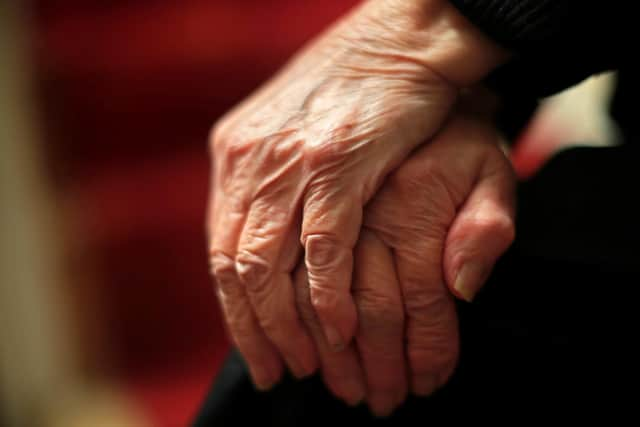Just three in five suspected dementia cases in Bedfordshire get formal diagnosis
and live on Freeview channel 276
Just three in five people suspected of living with dementia in Bedfordshire were given a formal diagnosis last year, new figures show.
NHS England guidance gives a target for two-thirds of people suspected of having dementia to be officially diagnosed with the condition.
Advertisement
Advertisement
But data from the Office for Health Improvement and Disparities shows just 59.2 per cent of people thought to have dementia in the NHS Bedfordshire CCG area were formally diagnosed in 2021 – based on an indicator that predicts the expected number of dementia cases in people aged 65 and over.


Nationally, 61.6 per cent of predicted dementia cases were formally diagnosed last year – the lowest rate in five years of available data, and down from 67.4 per cent in 2020.
Zena Aldridge, from Dementia UK, said a lack of funding has led to "patchy" diagnosis rates and that Covid-19 had an even greater impact, with face-to-face GP appointments reduced and memory assessment services scaled back or closed.
Thousands of families are stuck in limbo as they wait for a diagnosis, she added, with periods of isolation meaning friends and family have missed possible symptoms.
Advertisement
Advertisement
Ms Aldridge said: "Although there is no cure for dementia, receiving a diagnosis early on enables the person to plan for their future and seek appropriate support.
"We urgently need to address this imbalance by investing in quality dementia specialist care."
Prime Minister Boris Johnson promised to fix the adult social care crisis in his Conservative Party Conference speech in October, with a particular focus on provisions against dementia.
Last month, the Government said it will be producing a dementia strategy this year.
Advertisement
Advertisement
Across England, 415,778 people were formally diagnosed with dementia in 2021, down from 454,599 the year before.
In Bedfordshire, the total also fell, from 3,419 in 2020 to 3,198 last year.
Gavin Terry, head of policy at Alzheimer’s Society, said: "Covid has had a devastating impact on people affected by dementia and we estimate there are around 35,000 people living with dementia, who would have been diagnosed had the pandemic not happened.
"A timely dementia diagnosis is essential to getting vital health treatment as well as emotional and practical support."
Advertisement
Advertisement
Mr Terry has urged the Government to publish a "clear recovery plan" and provide more than £70 million of investment to tackle the backlog over the next two years, to reach the national diagnosis target.
The Department for Health and Social Care allocated £17 million in funding to NHS England and Improvement last year to addressing falling dementia diagnosis rates and provide greater pre and post-diagnostic support to dementia sufferers and their carers.
A spokesperson said the Government recognises the impact Covid-19 has had on dementia diagnosis rates, but added it has "set out a blueprint to address backlogs built up during the pandemic and tackle long waits with a massive expansion in capacity for tests, checks and treatments."